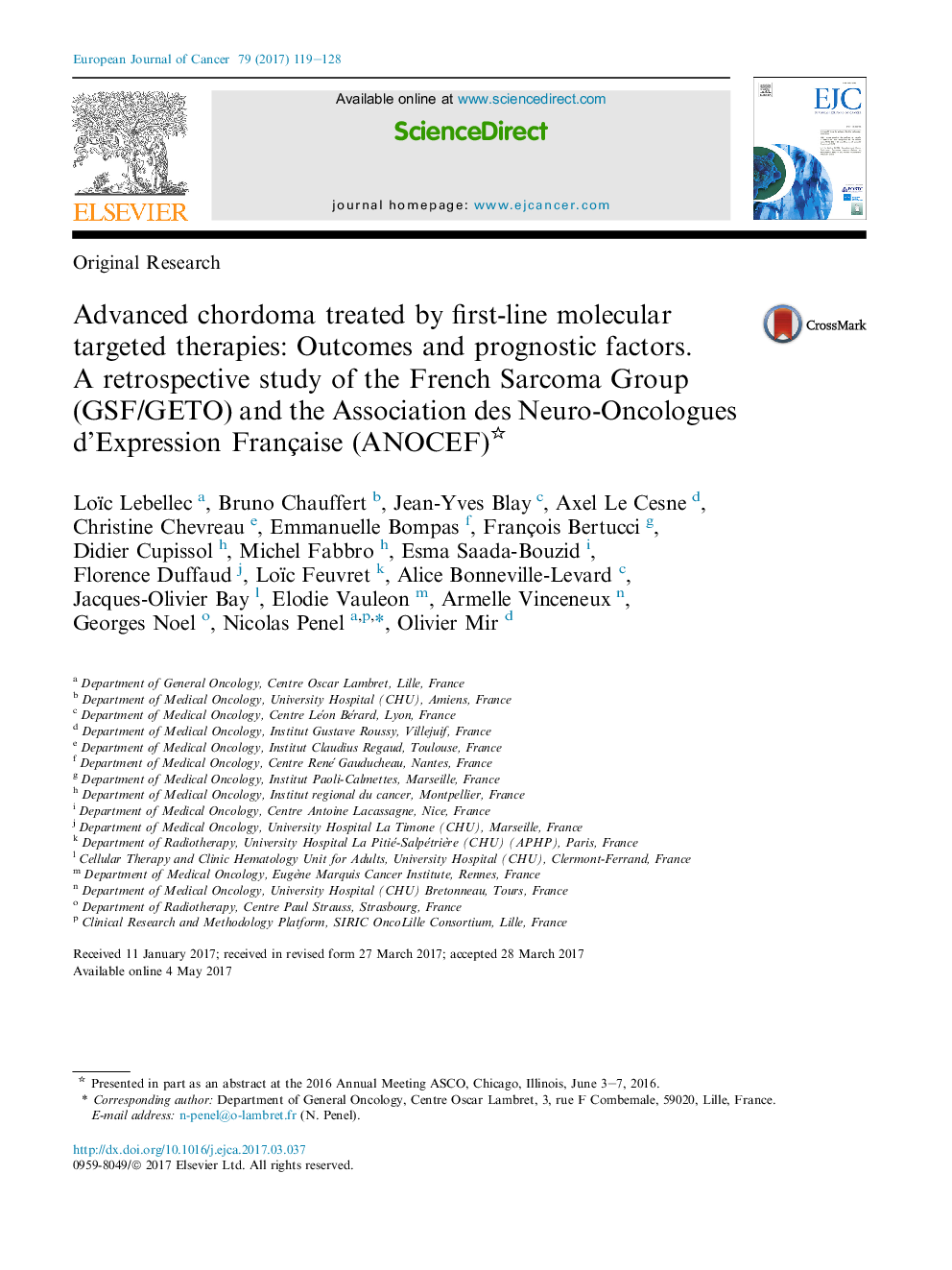| کد مقاله | کد نشریه | سال انتشار | مقاله انگلیسی | نسخه تمام متن |
|---|---|---|---|---|
| 5526657 | 1547053 | 2017 | 10 صفحه PDF | دانلود رایگان |

- The best objective response with first-line MTT in current practice was 6%.
- Prolonged stable disease was observed in more than 2/3 of patients.
- The occurrence of objective response and imatinib or erlotinib use were associated with symptomatic improvement.
- The primary site and the time since the initial diagnosis influenced PFS.
- The OS was influenced by liver metastasis, chordoma primary site, prior radiotherapy, and pain requiring opioids.
BackgroundTo assess the role of first-line Molecular Targeted Therapies (MTTs) in Advanced chordoma (AC) patients.MethodsRetrospective study of 80 patients treated between January 2004 and December 2015 at 15 major French Sarcoma or Neurooncology Centres.ResultsThe sex ratio M/F was 46/34. The median age was 59 (6-86) years. The primary sites were the sacrum (50, 62.5%), mobile spine (12, 15.0%), and skull base (18, 22.5%). Metastases were present in 28 patients (36.0%). The first line of MTTs consisted of imatinib (62, 77.5%), sorafenib (11, 13.7%), erlotinib (5, 6.3%), sunitinib (1, 1.2%) and temsirolimus (1, 1.2%). The reported responses were: partial response (5, 6.3%), stable disease (58, 72.5%), or progressive disease (10, 12.5%). Symptomatic improvement was seen in 28/66 assessable patients (42.4%) and was associated with an objective response occurrence (p = 0.005), imatinib (p = 0.020) or erlotinib use (p = 0.028). The median progression-free survival (PFS) was 9.4°months (95% CI, [6.8-16.1]). Two independent factors of poor prognosis for PFS were identified: a skull-based primary location (HR = 2.5, p = 0.019), and the interval between diagnosis and MTT of <52months (HR = 2.8, p < 0.001). The median overall survival (OS) was 4.4°years (95% CI, [3.8-5.6]). Four independent factors of poor prognosis for OS were identified: the presence of liver metastases (HR = 13.2, p < 0.001), pain requiring opioids (HR = 2.9, p = 0.012), skull-based primary location (HR = 19.7, p < 0.001), and prior radiotherapy (photon alone) (HR = 2.5, p = 0.024). The PFS and OS did not significantly differ between the MTT.ConclusionsThe prognostic factors identified require validation in an independent database but are potently useful to guide treatment decisions and design further clinical trials.
Journal: European Journal of Cancer - Volume 79, July 2017, Pages 119-128